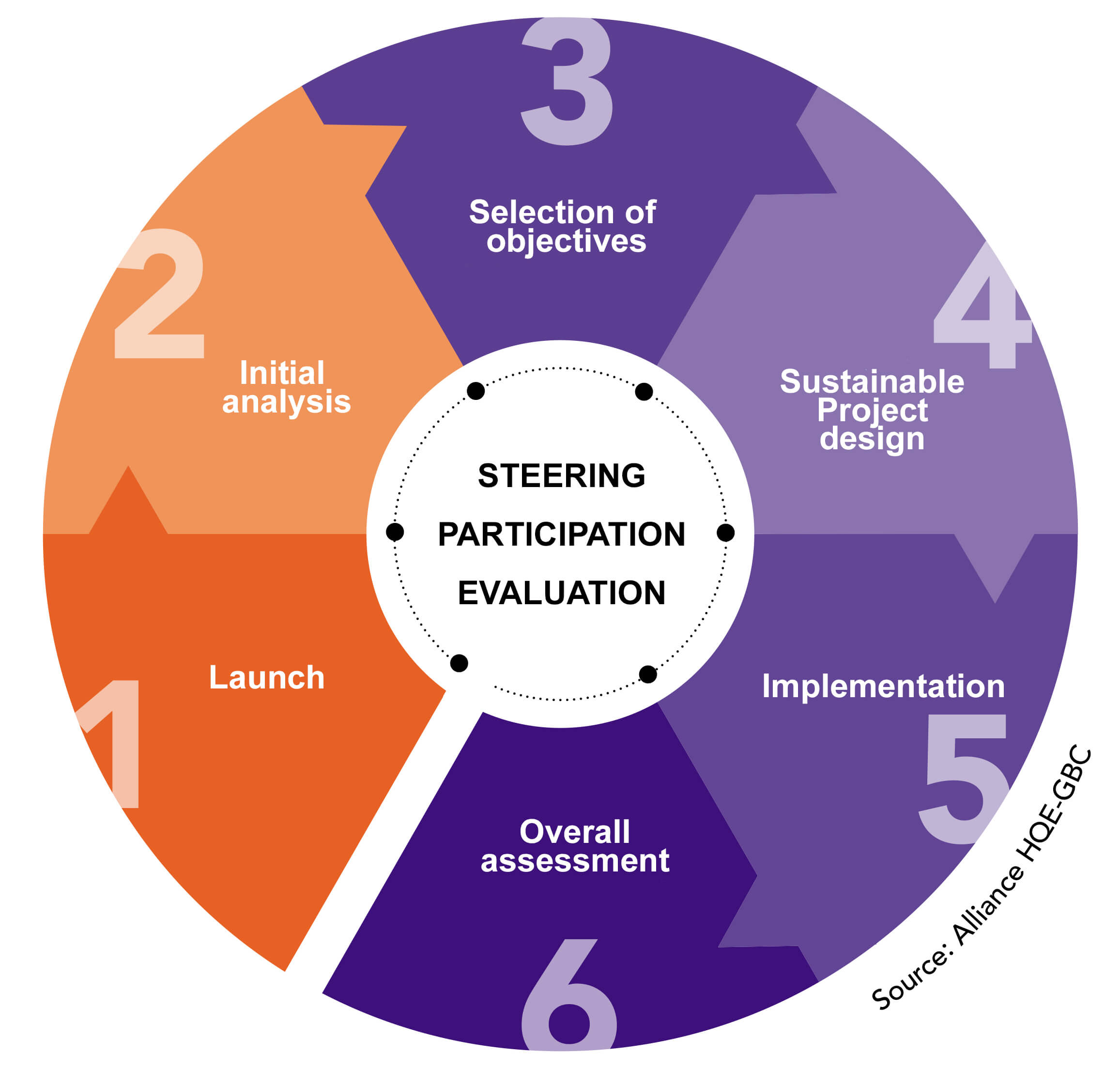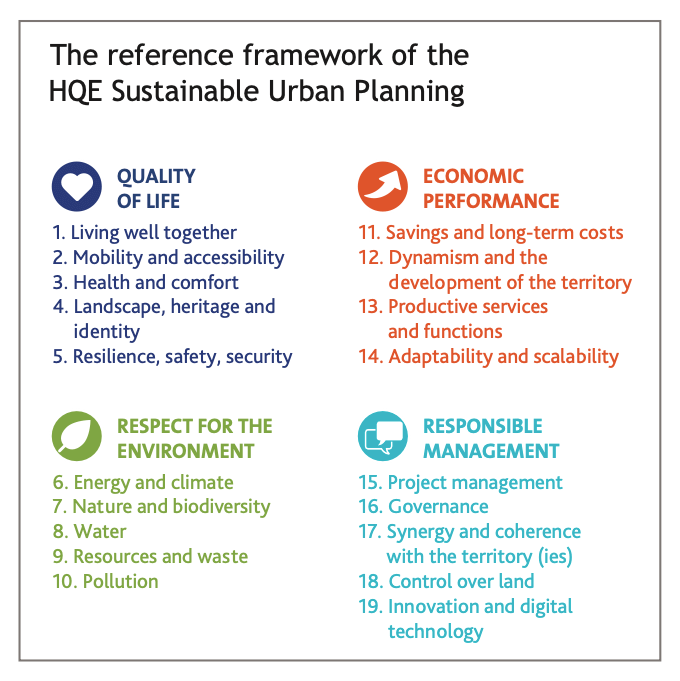Context and issues
Definition
The works of the Alliance HQE-GBC : HQE urban planning
Numerous factors are impacting the way we design cities, neighborhoods and villages: climate change and the extreme phenomena that go with it, the social fracture, the economic and ecological crisis. Operational planning must be rethought to integrate operations into the territory in a sustainable manner, to control their impact on the environment and to promote economic and social development.
Operational development involves many players and long lead times, reinforcing the need for tools to structure project management and maintain the ambition levels of operations, particularly in terms of environmental performance.
The Alliance HQE-GBC supports public and private development actors by offering them tools to help them build sustainable neighborhoods that meet the new challenges facing territories and the specificities of operational development: the reference framework and the HQE urban planning practical guide.
The HQE Development reference framework
Initiated in 2004 by planning stakeholders, with the support of ADEME, CINOV, CSTB, the EPL Federation, OGE, UNAM, USH and UNSFA, the HQE urban planning approach was tested from 2007 to 2009 resulting in the publication of a guide in 2010 followed by the creation of the HQE urban planning certification in 2011.
Intended for development operations with a view to sustainable development, the HQE urban planning guide offers a common language and an operation management system (OMS). It is a real management tool that puts the couple developer and community at the heart of the project.
Updated with the integration of the 4 HQE commitments in 2020 under the name HQE urban planning reference framework, it aims to carry out development operations integrated into their territory, whose project management ensures good governance and the feasibility of the program while reconciling the objectives of well-being, social cohesion and economic development with respect for the environment. It thus intends to provide stakeholders with responses to both environmental issues and the organizational issues of development operations.
The HQE urban planning reference framework, can be applied to any urban planning operation without distinction of size, procedure, territorial context or destination: renewal or new, urban or rural, housing or activities. It is therefore aimed at all development stakeholders, whether public or private, regardless of their size, engineering and internal expertise
It has the following inseparable components: An Operation Management System (OMS) and a thematic approach based on the 4 HQE commitments (Quality of life, Respect for the environment, Economic performance and Responsible management).
The Operation Management System (OMS), common thread of the reference framework, is made up of:
- Management, participation and continuous assessment systems
- Key phases that punctuate the progress of an operation.
The OMS facilitates dialogue between actors and stakeholders, the optimization of the operation as well as transparency and traceability.

The thematic approach, for a multi-criteria analysis, is based on 19 themes responding to the 4 HQE commitments.

The 19 themes constitute a reading grid for analyzing the site and defining the objectives of the sustainable development project.
The Practical Guide to Evaluation
The practical guide for the creation of sustainable neighborhoods – 19 decision-making aid indicators, published in 2022, offers actors in operational development a framework for the implementation of an evaluation according to a global and multi-criteria approach.
The first part recalls the fundamentals of an evaluation system, the benefits and the conceptual principles of an evaluation system specified for development operations.
The second part proposes 19 indicators resulting from the conclusions of the HQE Performance district test carried out in 2018-2019 with the support of ADEME, on around ten voluntary development operations. These are intended to serve as a common basis for an overall and multi-criteria assessment of urban planning operations. Specific indicators, adapted to the context and to the specific objectives of an operation, which can complement the evaluation desired by the actors of the project.
